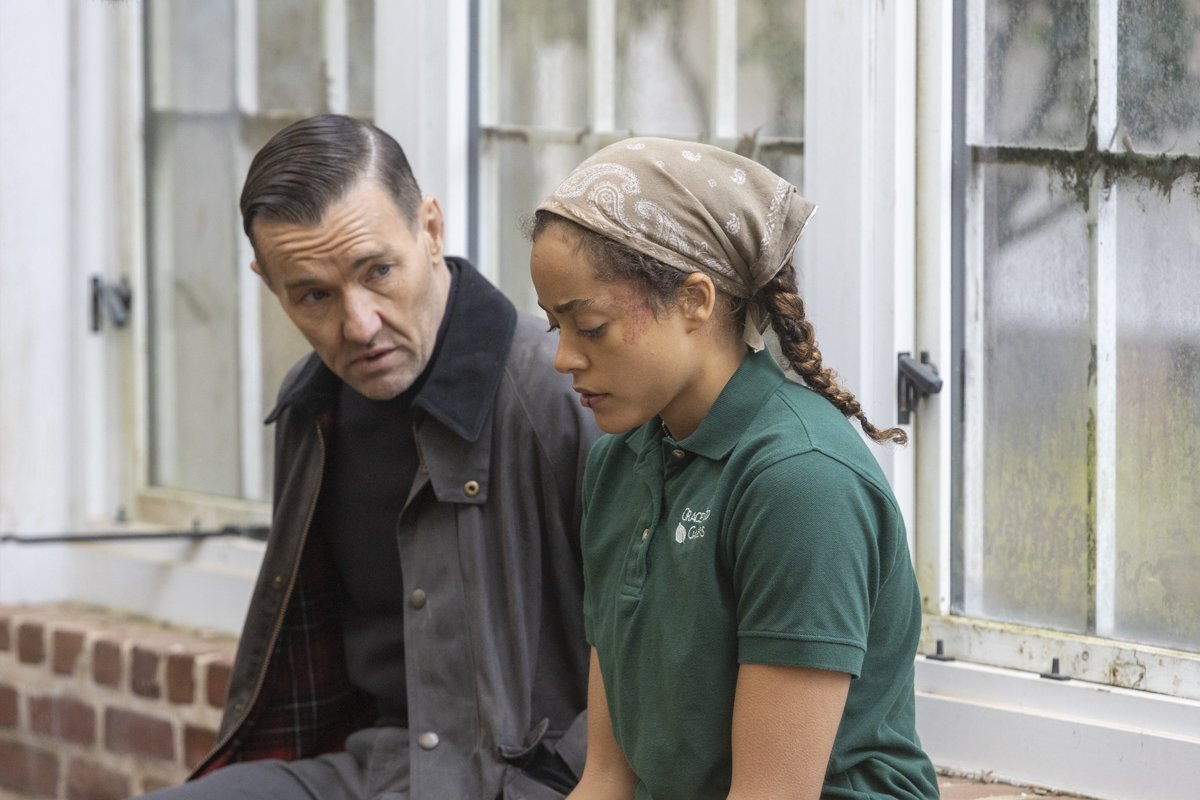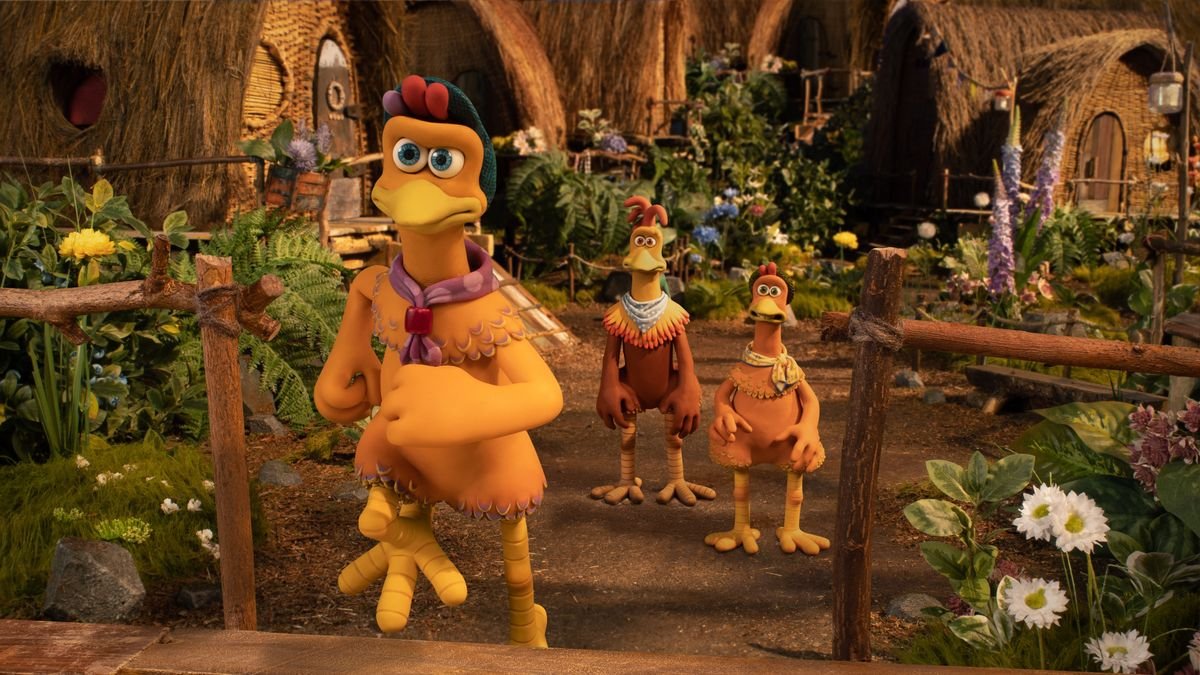Review: Master Gardener (2022)
During an early scene in Paul Schrader’s Master Gardener, Joel Edgerton’s titular gardener Narvel Roth gives a lesson on soil quality to some apprentices at Gracewood Gardens. As he describes loam and other high-quality soils, he encourages his apprentices to take off their gloves, grab a handful of dirt, and smell it. Not only smell it, but breathe it in and even kiss it. The other apprentices shoot knowing looks at each other, sniggering, but Narvel is deadly serious. He loves the dirt, loves its earthy smell, its feel on his hands, and, yes, the taste on his lips. He wants others to experience that feeling too. But only by allowing themselves to be awkward in the moment can gardeners appreciate the dirt on a deeper level. Master Gardener asks a similar trust of its viewers. It is an arch, often stilted, occasionally even awkward film about a reformed man and the possibilities of grace. And only by surrendering to its particular rhythms—only if we truly stick our faces into the dirt and breathe in and taste its earthiness—can its poetic, even beautifully optimistic, effect be fully appreciated.
The third in Paul Schrader’s recent “man in a room” trilogy, after First Reformed and The Card Counter, Master Gardener is as equally obsessed as those films with the notion of grace and whether humans can ever earn it. In a way, each film in this thematic trilogy centres on a particular sin of America on the macroscale and a central character who struggles with this sin on the microscale. First Reformed is about climate change, The Card Counter about the War on Terror and torture, and Master Gardener is about white supremacy. When Narvel takes off his working clothes after a day’s work, we see the SS symbols and swastikas tattooed on his body. Through his voiceover narration—a journal entry, just like in First Reformed and The Card Counter, and Taxi Driver before them—we learn that Narvel was a neo-Nazi gang member. He hated people. He killed people. And eventually he reformed and remade himself as a gardener on Gracewood Gardens, a former plantation estate owned by the wealthy Norma Haverhill (Sigourney Weaver).
Narvel lives by a strict set of rules, which he put in place to ensure that he never reverts to his old, violent ways. But he keeps the tattoos as a reminder of who he was and what he did; they are the proof of his sins and of his inability to completely forgive himself. Drawing on the “transcendental style,” which Schrader famously wrote about in his 1972 work of criticism, and which informs the style of the three films in the trilogy, Master Gardener is similarly beholden to rules. The camera is usually still and the framing is exact. Most scenes are shot in wide and characters are distant from the camera and each other. They move along geometrical lines within the frame, and rarely move quickly.
The music, a hauntingly beautiful synth and guitar-heavy work by Devonté Hynes, is similarly subdued. It bridges between scenes, but rarely interrupts quiet conversations between Narvel and others. In voiceover, Narvel explains that gardens are governed by shapes which allow the spontaneity of nature to express themselves to the fullest. The rules of the garden hold the chaos of the jungle at bay. Narvel, the man, and Master Gardener, the film, obey rules for similar reasons: only through the rigors of a demanding aesthetic, and ascetic, approach can meaning come to bloom.
Edgerton channels an ascetic approach to the role, even more still and quiet than Ethan Hawke’s Reverend Toller and Oscar Isaac’s William Tell in First Reformed and The Card Counter, respectively. In some of his most memorable roles, he’s capable of bursts of aggressive energy—think of his work as boorish husband, Tom Buchanan, in The Great Gatsby. But he’s even more at ease in stillness and discomfort—think of his quietly protective husband in Loving or even his MMA fighter in Warrior. Edgerton’s Narvel is a man who has dedicated himself to his rules and his new life, but also his garden. Unlike Hawke’s Toller or Isaac’s Tell, Narvel seems to approach his work as more than penance. It is also a joy. Edgerton carries himself with a mournful heaviness, but his eyes and voice betray genuine awe when he speaks of plants.
The film’s extreme focus on the act of gardening embodies the quiet optimism that simmers throughout Master Gardener. As Narvel explains in the film’s opening narration, gardening is a belief in the future—it’s an act of faith. You plant and prune and care for the flowers with the faith that they will bloom in the future. The film’s plot demonstrates a similar faith in the future and the act of healing.
Early in the film, Weaver’s Norma Haverhill tasks Narvel with mentoring her great niece, Maya (Quintessa Swindell), a mixed race young woman with a drug problem and a troubled past. Narvel bonds with Maya and helps her see the quiet dignity in gardening. Their relationship turns from one of mentorship to companionship and eventually to romance, as they see the other fulfilling so much of what they’ve been denied in their past. Together, they can prove that they’re new people: Narvel can prove he’s free of his racial hate, Maya can prove she’s free of her drug habits. But the journey is not without its challenges, for them and for the viewer.
Many scenes between Narvel and Maya are understated to the point of being stilted and awkward. One intimate moment in particular garnered guffaws from the theatre audience. But their relationship is not without bursts of expression either, albeit not in the familiar ways. The quiet romance and the joy in the beauty of flowers culminates in the film’s emotional climax, where Narvel and Maya share a midnight drive through a forest only to be overwhelmed with a transcendent vision of floral growth. It’s one of the key moments where Schrader breaks from the transcendental style; the emotional crux of the film requires a style that exemplifies such joy. It’s also no accident that this moment of joy between Narvel and Maya is visualized as flowers.
Again, the garden symbolizes the possibility of growth and healing and beauty to follow violence. Narvel has done awful things. Maya knows this. When she discovers his tattoos, they disgust her. But she tells him to get them removed. His skin can heal. He can become the man on the outside that he has become on the inside. Narvel similarly says that plants can grow back and, like people, heal. They are more resilient than we think.
Many viewers will not agree with Maya or Narvel’s conclusions about healing and grace. They do not think that a man who has done what Narvel has done is worthy of forgiveness, much less capable of change. But such is the difficult idea of grace, the concept that humankind can be redeemed, that all sin, no matter how fundamental and awful, can be overcome. Master Gardener believes such grace is possible, no matter how unpleasant and awkward and difficult. Sin can be overcome with grace and love and a belief in the future. Soil can be renewed, flowers can bloom once again, and human beings can not only escape from their pasts, but also grow beyond it.
8 out of 10
Master Gardener (2022, USA)
Written and directed by Paul Schrader; starring Joel Edgerton, Sigourney Weaver, Quintessa Swindell, Esai Morales.



The best part of the Road House remake is Jake Gyllenhaal, who makes his bouncer-warrior another one of his dark loner characters.